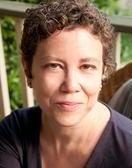
I was glad to add my voice to an important piece this week on NPR’s All Things Considered, entitled “With Interfaith Sunday Schools, Parents Don’t Have To Choose One Religion.” Introduced by my favorite host, Michel Martin, the story was reported by Rami Ayyub, who visited the Sunday School at the Interfaith Families Project (IFFP) in order to talk to staff, parents, and students. He also stopped by my house to record an interview.
Rami comes from a background that includes Muslim and Christian family members, and he wanted to explore whether the model for educating Jewish and Christian interfaith children could be extended to other religions. For this story, he also interviewed Imam Yahya Hendi, the Muslim chaplain at Georgetown University (and a friend and colleague of IFFP’s late beloved rabbi, Harold White, who was the Jewish chaplain at Georgetown). Imam Hendi said that as often as once a month, an interfaith couple asks him if there is some kind of Muslim and Christian, or Muslim and Jewish, interfaith education program for interfaith children.
The answer is, not yet. But as I told Rami, if you build it, they will come. Traditional religious institutions are not going to create dual-faith religious education programs for children. They are still urging parents to restrict religious education and identity labels for children to a single faith. And yet, as Being Both documents, parents are voting with their feet, creating ways to give interfaith children broader interfaith education, even if it means moving away from traditional religious institutions that disapprove of this pathway.
As for Muslim and Christian interfaith families, I know that there are already communities for these families in England, Scotland and France , and a couples group in Chicago. But as of yet, I don’t know of any interfaith education program devoted to children from Muslim and Christian interfaith families. In my book, the Muslim and Christian interfaith couples I interviewed were either planning to essentially home-school for interfaith education, and/or alternating or combining single-faith Muslim and Christian education programs. It is interesting to note that in England, all students are required to get some interfaith religious education in government-funded schools. As a result, interfaith family community leaders there have told me they feel less pressure to provide interfaith education for interfaith children.
The NPR piece considers whether the existing dual-faith programs in the US, such as IFFP, could or should become tri-faith programs. In his piece, Rami quotes IFFP’s Spiritual Director Julia Jarvis (our minister) as saying that she hopes that in 20 years, groups like IFFP will have opened the door to the third Abrahamic religion (Judaism, Christianity, and Islam all share the story of Abraham as patriarch).
But I want to suggest another way of looking at this. It is true that many of us have been pushing the existing Jewish and Christian interfaith education programs to work on ways to incorporate more education about Islam, because all Americans need more education about Islam in order to combat Islamobophia. But I do not foresee all of these dual-faith programs becoming tri-faith programs. To be frank, interfaith family communities have their hands full trying to teach children about two religions, and disproving the idea that what they teach is “a mile wide and an inch deep.” They work hard to explain the great depth created when teaching the historical, theological and cultural points of connection between these two religions.
The way I see it, interfaith family programs teaching Judaism and Christianity have created a template that is available, to everyone, of any religion (or none), not in 20 years, but right now. As early as tomorrow, five Muslim and Christian families could come together and decide to build a dual-faith education program for their children. The experts in Jewish and Christian interfaith education for interfaith children stand ready to share experiences and resources on how to do this with interfaith families from Muslim, Hindu, Buddhist, or any other worldview.
All of us have agency–have the power to create community. Each of us can envision new ways to help our children to integrate their complex identities. Anyone has the freedom to create interfaith education programs in order to help our children to see themselves as interfaith peacemakers. We do not have to wait for permission. We do not have to wait for any door to open. The door is already open.
Susan Katz Miller is the author of Being Both: Embracing Two Religions in One Interfaith Family, from Beacon Press. She works as an interfaith families consultant, speaker, and coach. Follow her on twitter @beingboth.

